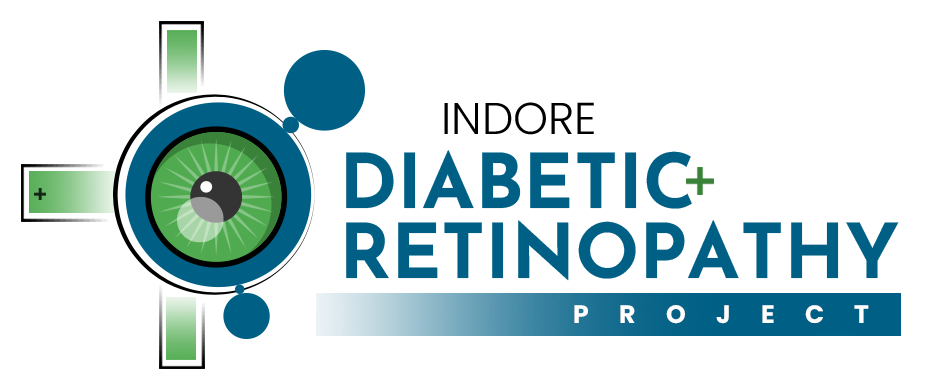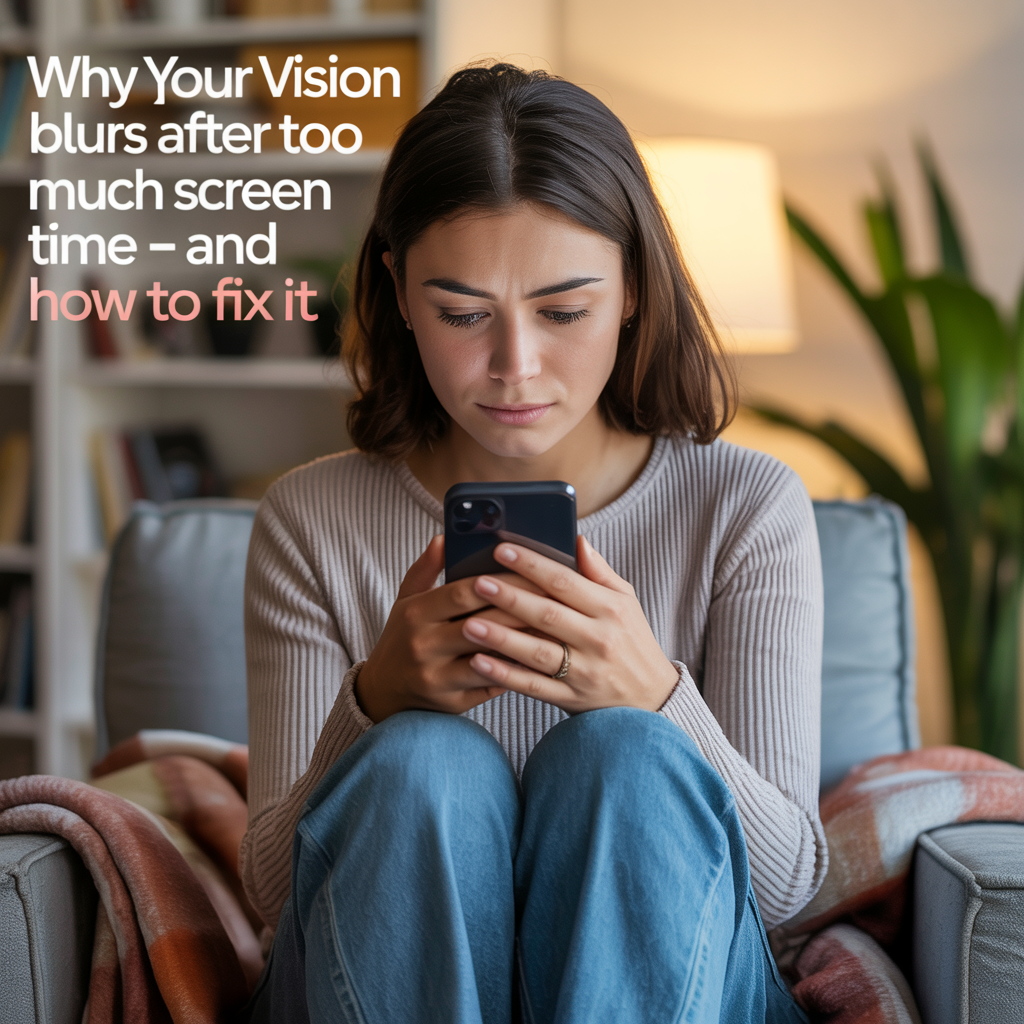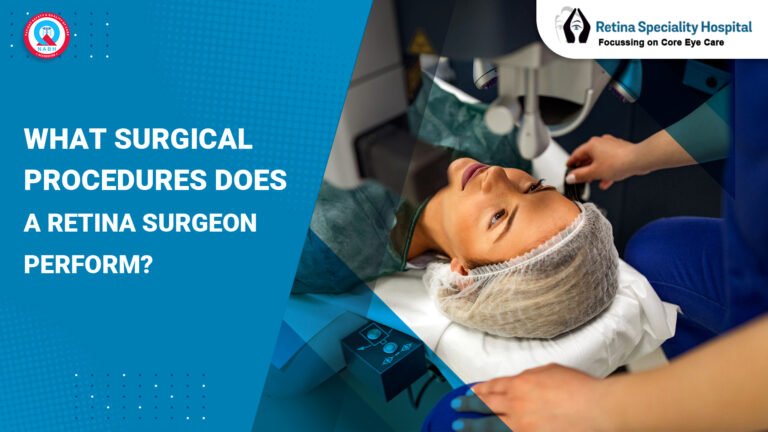Do you often feel that your vision blurs after hours of scrolling, gaming, or working on digital screens? You’re not alone. In today’s digital-first world, blurred vision and eye strain have become common complaints. Spending long hours on phones, laptops, or TVs can lead to discomfort, headaches, and even long-term eye problems if ignored. In this blog, you’ll learn why vision blurs after excessive screen time and practical ways to fix it. You’ll also discover when it’s time to visit the best eye hospital in Indore like Retina Speciality Hospital, a trusted vision care centre for retina, to protect your long-term eye health.
Why Vision Blurs After Too Much Screen Time
Digital Eye Strain – The Main Culprit
The most common reason your vision blurs after using digital devices is a condition called digital eye strain (also known as computer vision syndrome). When we focus on screens for long hours, our eyes blink less and work harder to maintain focus. This leads to:
- Dryness and irritation
- Difficulty focusing on near and far objects
- Temporary blurred vision
Blue Light Exposure
Screens emit blue light, which scatters more in the eye, making it harder to focus. Prolonged exposure can cause blurred vision, eye fatigue, and sleep disturbances.
Poor Screen Habits
Your posture, screen distance, lighting, and continuous staring without breaks can all add to blurred vision.
Symptoms That Tell You Vision Blurs from Screen Time
Recognizing the signs early can help you act before it worsens. Look out for:
- Intermittent blurred vision while reading or working
- Headaches around the eyes or forehead
- Eye dryness or watery eyes
- Difficulty focusing between digital devices and real objects
- Neck and shoulder pain from poor posture
If you’re experiencing these symptoms frequently, visiting an Indore best eye hospital like Retina Speciality Hospital is a wise choice for timely diagnosis.
How to Fix Vision Blurs from Screen Time
1. Follow the 20-20-20 Rule
Every 20 minutes, look at something 20 feet away for 20 seconds. This gives your eye muscles a chance to relax and reduces blurred vision.
2. Adjust Screen Settings
- Increase text size for comfortable reading.
- Adjust brightness to match your room lighting.
- Use blue light filters or “night mode” to reduce strain.
3. Maintain Proper Distance & Posture
Keep your screen at arm’s length (about 20–24 inches) and slightly below eye level. Avoid slouching or bending your neck for long periods.
4. Blink Often & Stay Hydrated
Blinking spreads tears evenly over your eyes, preventing dryness. Drink enough water daily to maintain hydration.
5. Regular Eye Exercises
Simple eye rotations, focusing near and far, or palming can strengthen eye muscles and reduce fatigue.
6. Schedule Eye Checkups
If your vision blurs often, don’t just rely on home remedies. A professional eye exam at Retina Speciality Hospital, a leading vision care centre for retina, ensures you’re not missing underlying conditions like refractive errors, dry eye disease, or early retinal issues.
Long-Term Solutions for Vision Blurs
Sometimes blurred vision isn’t just about screen time—it could be a sign of underlying problems. Visiting the best eye hospital in Indore ensures early detection and treatment. At Retina Speciality Hospital, specialists provide:
- Comprehensive eye exams with advanced diagnostic tools
- Retina-focused treatments for early signs of damage
- Personalized advice on digital eye care and preventive strategies
By seeking professional help, you not only fix temporary discomfort but also protect your long-term eye health.
When to See a Doctor for Vision Blurs
Don’t ignore blurred vision if you notice:
- Sudden or severe blurring
- Flashing lights or dark spots in your vision
- Difficulty reading even with glasses
- Persistent headaches with vision strain
These could indicate more serious conditions requiring immediate attention from an Indore best eye hospital like Retina Speciality Hospital.
FAQs on Vision Blurs and Screen Time
Q1. Can screen time cause permanent vision loss?
No, screen time itself doesn’t cause permanent loss. However, it may worsen existing eye problems if not managed. Regular checkups at a trusted vision care centre for retina can help.
Q2. How many hours of screen time is safe?
Experts recommend limiting recreational screen time to 2 hours daily for adults, apart from work. Children should have even stricter limits.
Q3. Do blue light glasses really help with vision blurs?
Blue light glasses may reduce glare and eye fatigue, but regular breaks and proper posture are equally important.
Q4. Can blurred vision be a sign of something serious?
Yes, persistent blurred vision may signal cataracts, retinal problems, or uncorrected refractive errors. Visit the best eye hospital in Indore for accurate diagnosis.
Conclusion: Take Control Before Vision Blurs Become Worse
In today’s screen-driven lifestyle, blurred vision is a warning sign that your eyes need rest and care. By following simple practices like the 20-20-20 rule, adjusting your screen habits, and staying hydrated, you can prevent everyday strain.
However, if your vision blurs frequently, don’t ignore it. Early diagnosis is the key to protecting your eyesight. Visit Retina Speciality Hospital, known as the Indore best eye hospital and a trusted vision care centre for retina, for expert consultation and long-term solutions. Don’t wait for blurred vision to become permanent—book your eye checkup at Retina Speciality Hospital today!












